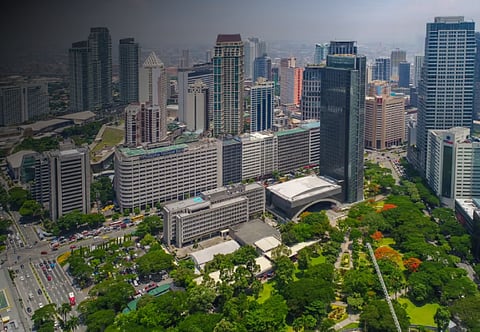
- NEWS
- the EDIT
- COMMENTARY
- BUSINESS
- LIFE
- SHOW
- ACTION
- GLOBAL GOALS
- SNAPS
- DYARYO TIRADA
- MORE

The country's net inflows of foreign direct investments (FDI) rose by 7.1 percent to $610 million in April from $570 million recorded in the same month last year, reflecting a stronger debt market but weaker equity investments which dropped by over 90 percent.
The Bangko Sentral ng Pilipinas on Thursday (BSP) said FDI in debt instruments jumped by 24.3 percent to $522 million from $420 million.
This was after BSP relaxed its policy rate to 5.5 percent on April 10 from 5.75 percent, signaling softer inflationary risks and a competitive peso which can lead to higher corporate revenues and government savings.
As a result, Rizal Commercial Banking Corporation chief economist Michael Ricafort said borrowing entities were encouraged, to some extent, to seek additional capital in taking advantage of reduced financing costs.
Reinvestment of earnings also increased by 3.3 percent to $84 million from $82 million.
However, equity investments excluding the aforementioned dropped by 94.1 percent from $68 million to $4 million amid global economic uncertainty stemming from Trump's tariffs.
On April 2, US President Donald Trump announced high tariffs on US imports which he later said would not be implemented until 9 July.
Thus, HSBC economist for Southeast Asia Aris Dacanay said investors delayed capital transfers as they waited for a more stable trade policy from the Trump administration.
"They don't know what's going to happen next. Of course, the effect is less demand from the US," he said.
BSP reported Japan as the biggest source of equity funds into the Philippines in April, accounting for 32 percent of the total investments.
The United States placed second, registering an 18 percent share. This was followed by Singapore and South Korea which both contributed 13 percent and Taiwan which represented 9 percent.
Biggest recipients of equity funds included manufacturing, financial and insurance, and real estate industries.
Given the global economic uncertainty, FDI net inflows from January to April declined by 33.4 percent to $2.4 billion from the $$3.6 billion recorded in the same months in 2024.
Possible higher inflation
Given the new Trump's tariffs, economists said local inflation might rise which could translate to softer company profits and demand for expansion projects.
Trump announced a new 20 percent tariff on the Philippines, up from 17 percent, and 30 percent tariff on China and beyond that rate for Indonesia and Thailand which are major goods exporter to the Philippines.
"Tariffs on key suppliers to the Philippines could raise prices of imported goods and raw materials," said Union Bank of the Philippines chief economist Carlo Asuncion.
Dacanay added that the manufacturing industry in the country could slow down as it faces greater competition from Vietnam.
"A lower tariff would incentivize labor intensive manufacturers to relocate to the Philippines, kickstarting an influx of greenfield FDI. But with the tariff rate being raised to 20 percent, the Philippines is now in line with Vietnam, wiping out the relative advantage the economy was hoping for," he said.
Economists, however, said the Philippines has time to negotiate for a lower tariff as Trump plans to implement the new tariffs on 1 August.
"Inflation may not spike sharply, but second-round effects could emerge over time, especially if regional supply chains are disrupted or the peso depreciates," Asuncion said.
